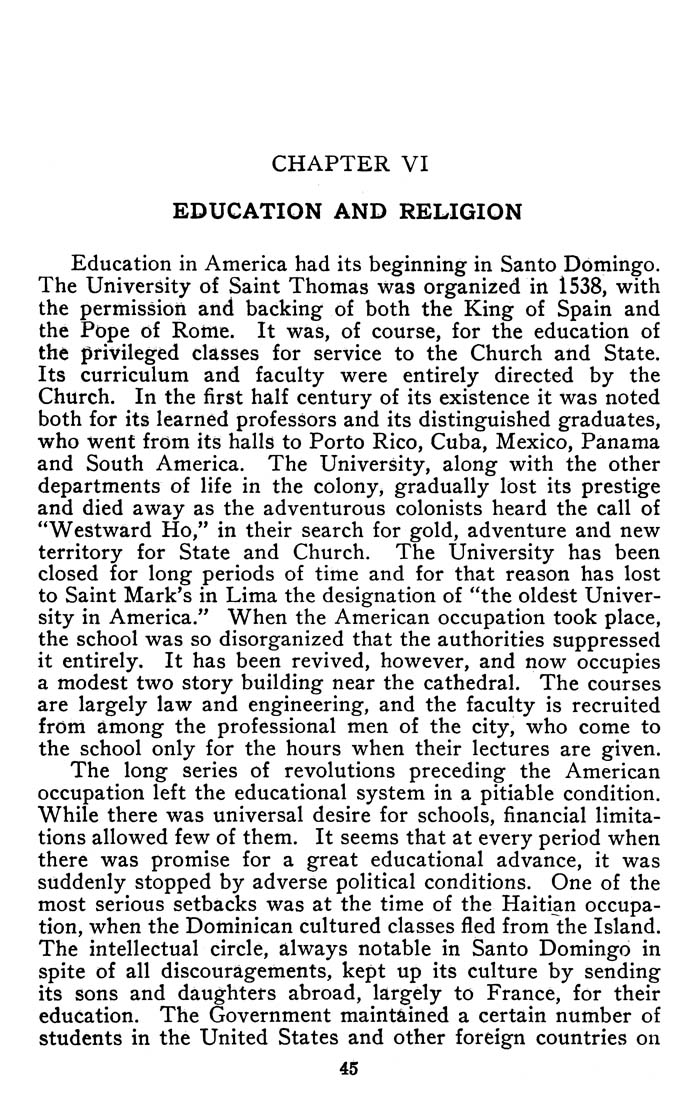CHAPTER VI
EDUCATION AND RELIGION
Education in America had its beginning in Santo Domingo.
The University of Saint Thomas was organized in 1538, with
the permission and backing of both the King of Spain and
the Pope of Rome. It was, of course, for the education of
the privileged classes for service to the Church and State.
Its curriculum and faculty were entirely directed by the
Church. In the first half century of its existence it was noted
both for its learned professors and its distinguished graduates,
who wetit frdm its halls to Porto Rico, Cuba, Mexico, Panama
and South America. The University, along with the other
departments of life in the colony, gradually lost its prestige
and died away as the adventurous colonists heard the call of
"Westward Ho," in their search for gold, adventure and new
territory for State and Church. The IJniversity has been
closed for long periods of time and for that reason has lost
to Saint Mark's in Lima the designation of "the oldest Univer¬
sity in America." When the American occupation took place,
the school was so disorganized that the authorities suppressed
it entirely. It has been revived, however, and now occupies
a modest two story building near the cathedral. The courses
are largely law and engineering, and the faculty is recruited
from among the professional men of the city, who come to
the school only for the hours when their lectures are given.
The long series of revolutions preceding the American
occupation left the educational system in a pitiable condition.
While there was universal desire for schools, financial limita¬
tions allowed few of them. It seems that at every period when
there was promise for a great educational advance, it was
suddenly stopped by adverse political conditions. One of the
most serious setbacks was at the time of the Haitian occupa¬
tion, when the Dominican cultured classes fled from the Island.
The intellectual circle, always notable in Santo Domingo in
spite of all discouragements, kept up its culture by sending
its sons and daughters abroad, largely to France, for their
education. The Government maintliined a certain number of
students in the United States and other foreign countries on
45
|








